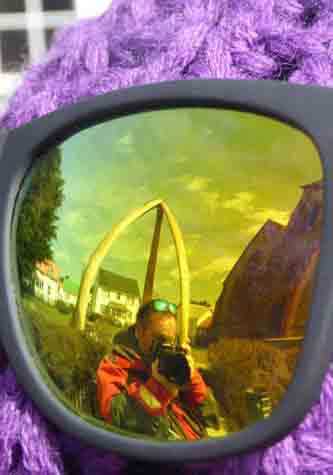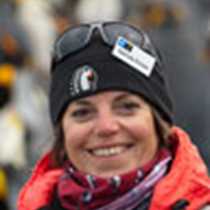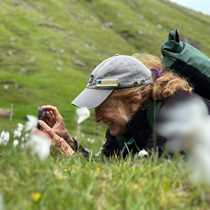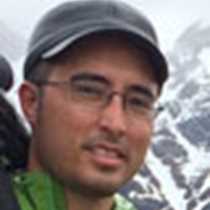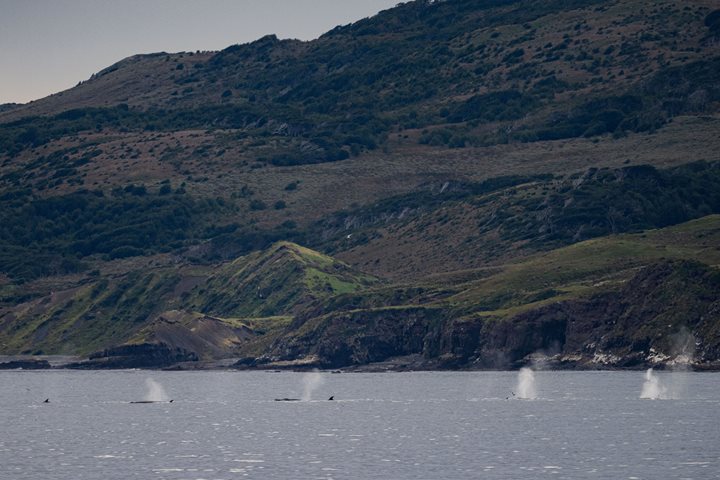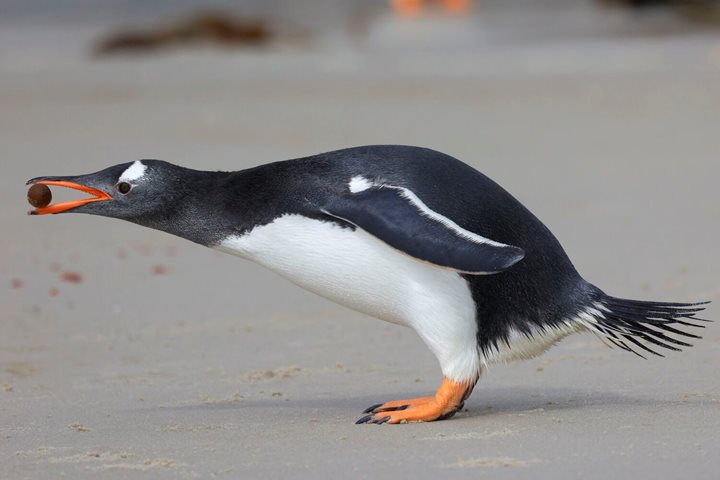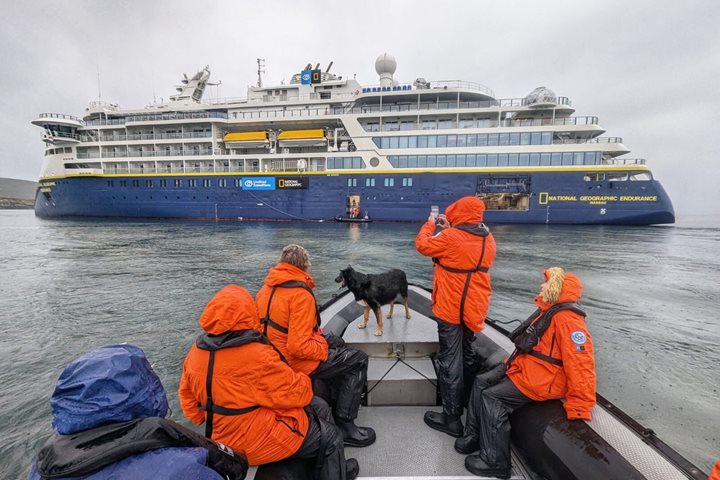A persistent breeze accompanied our ship throughout the morning as we approached the docking site in Stanley, the administrative capital of the Falkland Islands. Today we are visiting the only ‘proper’ town in this archipelago, where over 2,100 people live. This is about 75% of the population of the entire Falkland Islands concentrated here.
The town is a lively combination of colorful buildings, numerous Land Rovers on the streets, and British flags flying in the mast of official buildings. The silhouette of the Anglican Church and its arches made of blue whale jaw bones can be seen from the distance when reaching the waterfront. Stanley’s main road resembles a characteristic small British seaside town, but the nearby gift shops offering a plethora of penguin-like souvenirs reminds us of their southern hemisphere location.
Our options are multiple to enjoy this town. Some choose to have a historic and cultural guided tour, finding out from local guides what it takes to live in this remote corner of the world. Garden gnomes and a visit to the local museum provide a deeper insight of the islands’ lifestyle. Other guests are intrigued in learning on the efforts to grow fresh produce in the local hydroponics to satisfy the needs of local consumers and the tourism industry. The traditional sheep farming activities that have been the backbone of the Falklands’ economy in the past are on display during the farm tour. Those in the need of more vigorous activity embark on a hike to Mt William and Mt Tumbledown, the highest hills in the vicinity of the town. These are also the site for battlefields during the 1982 Falklands Conflict, when the military government ruling Argentina invaded the islands in an armed conflict that lasted just over two months. Remains of military equipment and improvised shelters are scattered in this barren landscape. The scars of the war are still present in the memory of the islanders, who proudly display their allegiance to their British heritage in defiance of the political discourse of sovereignty claims that have characterized the current Argentine government policies.
There are no traffic lights or fast-food restaurants in this rapid growing town. Today, the economy of the islands relies on the sale of squid fishing licenses, world-renowned wildlife watching eco-tourism, and the prospect of off-shore oil and gas extraction in the near future.
Many of us never imagined, or little alone heard of the Falkland Islands before embarking on this voyage. Now that we have seen and appreciated its people and its wild and beautiful environment, the Falkland Islands will have a different meaning in our memories than just a conflicted and heavily politicized speckled of land in the South Atlantic.

